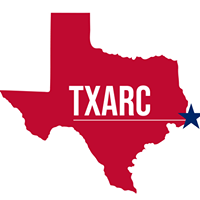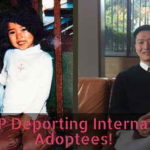Dear Senator:
Bastard Nation: the Adoptee Rights Organization is the largest adoptee civil rights organization in the United States. We support full, unrestricted and unconditional access for all adopted persons to their original birth certificates. (OBC). We believe that every adopted person should enjoy due process and equal treatment under law the same as the not adopted.
We would like nothing more than to support HB 984 . Unfortunately, we cannot due to what amounts to a Contact Veto in Sections 2 and 3 of the bill. Those sections take the traditional language of a Contact Preference Form, (CPF) which lets a natural parent, if they so desire, to state if they prefer contact with the adoptee, and twists it into a Contact Veto which prohibits, upon request of a natural parent, an adoptee from contacting that natural parent.
This is not a language nit-pick. Language matters, and there is a world of difference legally between the words “prefer” and “authorize.” These sections take the traditional language of the CPF and turns it on its head exchanging the word “prefer” for “authorize;” thus, creating a “Contact Veto” (without that specific term in the bill) that can act as a restraining order against an adopted adult with no opportunity for that adult to appear in court and stand against the accuser. No reason needs given, and no court adjudicates the request. We believe that a Contact Veto by that or any other name is unconstitutional and actionable.
Moreover, the word “contact’ itself is problematic and not defined in the bill. Does “contact” mean contact with a natural parent or contact with extended family members as well? Does “contact” mean direct contact between an adoptee and a natural parent (or other family members) by a letter or email, a phone call, or personal visit to the home? Is it a one-time event or a series or pattern of events? What happens when an adoptee who identifies and locates a parent through means other than an OBC? What happens when an adoptee finds a cousin on ancestry.com or through a DNA test from various online companies? What happens when that cousin, not the adoptee, initiates contact? Would these adoptees be subject to the Contact Veto prohibition, even though their actions were not connected to OBC access and/or if they had no idea the CV had been filed?
The easy way out of this quandary would have been to amend the language of Sections B and C from “authorize” to “prefer.” This would have guaranteed the meaning of equal protection and equal treatment under law and maintain the integrity of adoptee civil rights.
Unfortunately, no such amendment was accepted. Instead, an amendment was added to the bill that places a limitation on the time frame (July 1, 2016) that a natural parent may change her or his mind mind or file a Contact Preference Form and a Medical History Form. After that date, it is in the discretion of the Registrar. Of further concern, for adoptions after July 1, 2016, it is an adoption agency, not the Registrar, that issues and collects the forms. No language in the bill provides the date for compliance and there is no oversight or penalty to an agency that fails to adhere to the law. I can think of no other state that has a CPF on the books that puts that kind of power into the hands of either the registrar or adoption agencies.
Kansas and Alaska have never sealed original birth certificates. Since 1999 five states have restored to adoptees the unrestricted right to OBC accesss: Oregon through ballot initiative, and Alabama, New Hampshire, Maine, and Rhode Island through legislation. None of these seven state laws include a Contact Veto under that name or any other name. Why should Texas buck the system? Are Texas adoptees so dangerous that natural parents need the protection of the state to keep them at bay through the abrogation of their right of adoptee association and movement?
The passage of a clean unrestricted bill with no contact veto language, even vague language, would have put Texas on the map as a state that respects the civil rights of its adoptees. The restoration of this right would not contain a prohibition that can be utilized to prevent adopted adults from contacting and meeting members of their own biological families nor their right to free association and movement.
Unfortunately, the rights of all Texas adoptees have been undermined and gutted by one word: “authorize”, a word with heavy political and legal meaning.
Don’t let one word gut the rights of Texas adoptees. Vote NO on HB 984.
Sincerely yours,
Marley E. Greiner
Executive Chair
Bastard Nation: the Adoptee Rights Organization





 New York Adoptee Rights Coalition
New York Adoptee Rights Coalition











